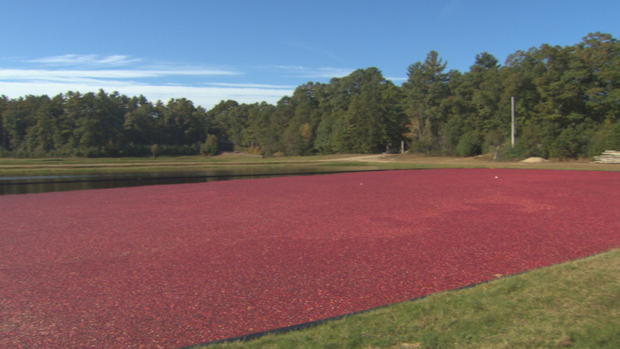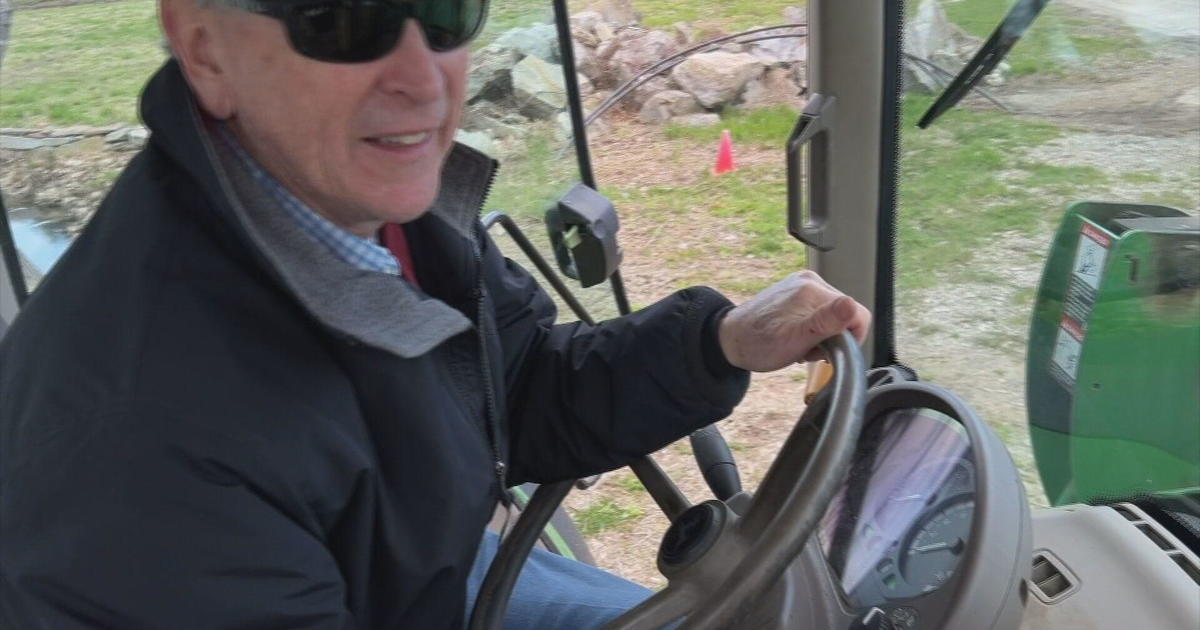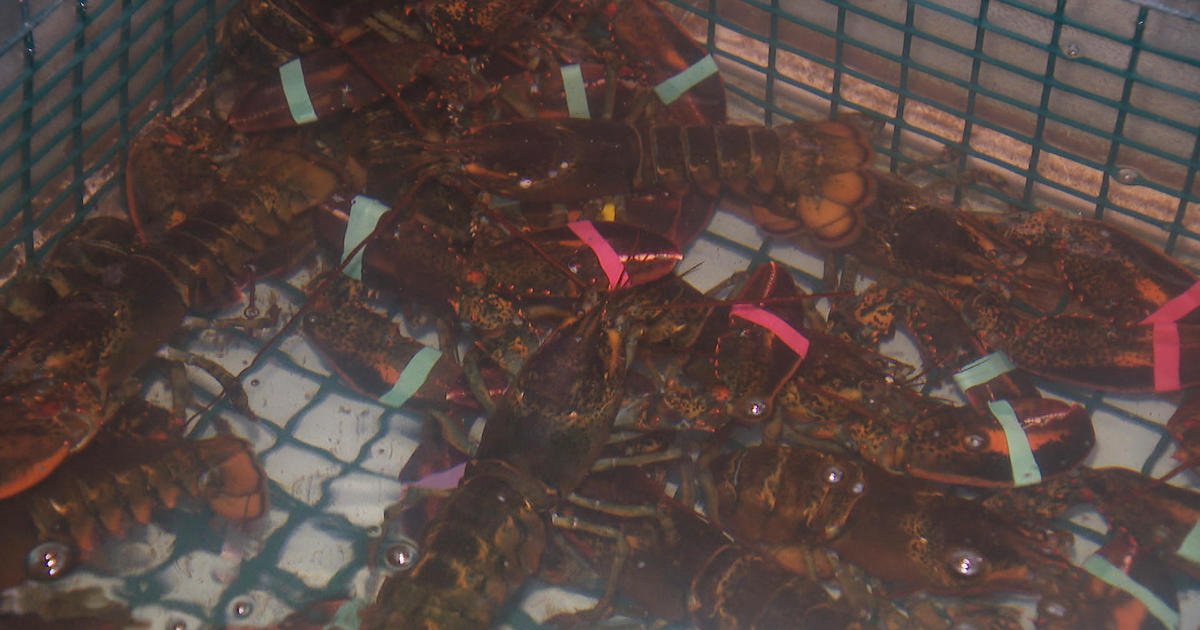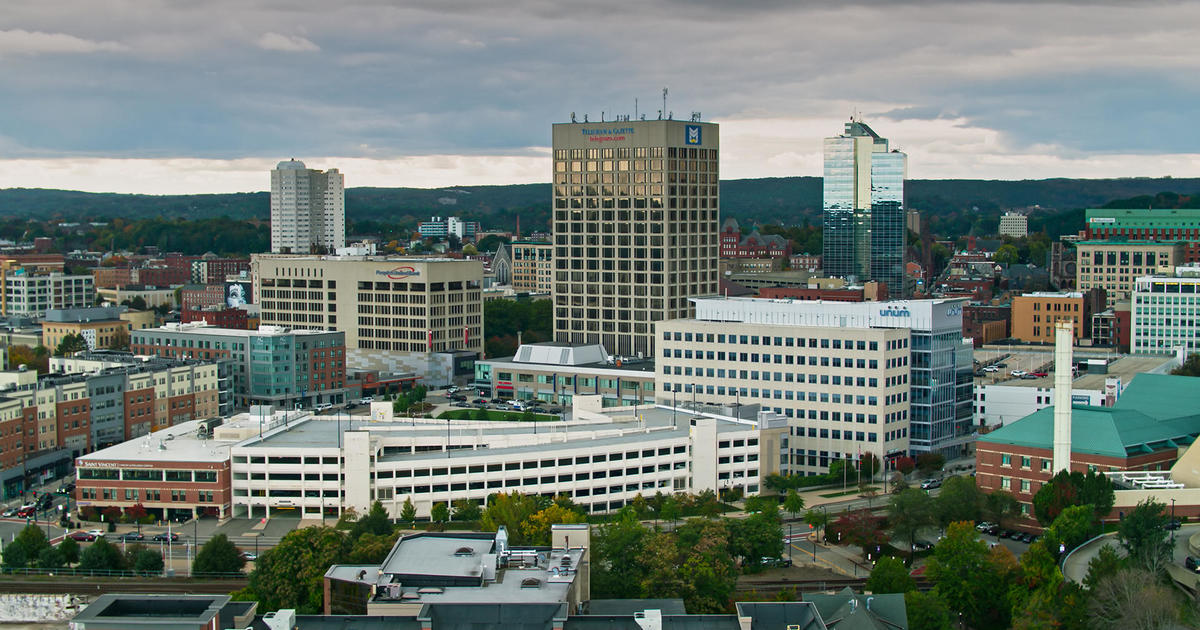'Not Normal Conditions': Cranberry Farmer Says Climate Change Has Made Harvesting More Difficult
CARVER (CBS) -- Cranberries are one of New England's native and quintessential crops, but now they're facing real weather challenges in our warming climate.
"This is a native fruit to north America, and these are not normal conditions we are trying to grow in," states Dom Fernandes, Grower & Owner of Fresh Meadows Farm in Carver. "Farmers are pretty much at the forefront of the challenges we're facing with climate change."
Fernandes is a third-generation cranberry farmer of the family-owned-and-operated Fresh Meadows Farm in Carver. This is the time of year when bogs are flooded and berries are harvested. Some of them are transported to a facility to be sorted for Ocean Spray.
Fernandes also dry harvests his organic cranberry bogs to be sorted, packed, and sold locally. He used to have promising hopes that each year would be better than last.
"This time last year in August was the first year in 41 years I wasn't sure, and many growers were sure, we had enough water to flood our bogs to wet harvest," says Fernandes. "And one year later, we are deluged with water to the point that we were experiencing floods that affected the quality of the crop."
He knows weather can make or break a season.
"The crop is substantially down in Massachusetts from the potential we saw in mid-summer. And that is directly related to that fact we had almost a record amount of rainfall," Fernandes said.
Fungus, insects, and other challenges arise as our climate continues to warm and more extreme rain events are likely to occur. Wild swings in temperatures can also be problematic for farmers.
"It's one thing to adapt to trends as the weather changes, but what's really difficult to adapt to is the fluctuations that we're seeing both in temperature and in moisture."
Similar to how leaves change color with the cooler nights in Autumn, so does the color of the cranberry. This year, Boston didn't dip below 50 degrees until October 18, making it the latest on record.
"The unusually warm part of it delayed color so that many of the later varieties couldn't get harvested on time," said Fernandes.
But it was also the extreme heat we experienced in June that impacted the cranberry crop this year. With multiple days above 90 degrees, the 'busy' bees weren't so busy.
"We just didn't get the pollination from the migratory bees. We did get some pretty good pollination from some of our native bees, our bumble bees, but the migratory bees just didn't work. And that was directly related to just how hot it's been, and that's been an issue I've noticed off and on over the last few years."
Despite the challenges mother nature has thrown his way, he is hopeful that cranberry farming will continue to be woven into the fabric of Massachusetts for generations to come. But there is also some concern.
"My guess would be if we continue to warm, the (cranberry) industry might begin to shift more and more to the north. But we'll see just how adaptable these vines are." Fernandes says.




